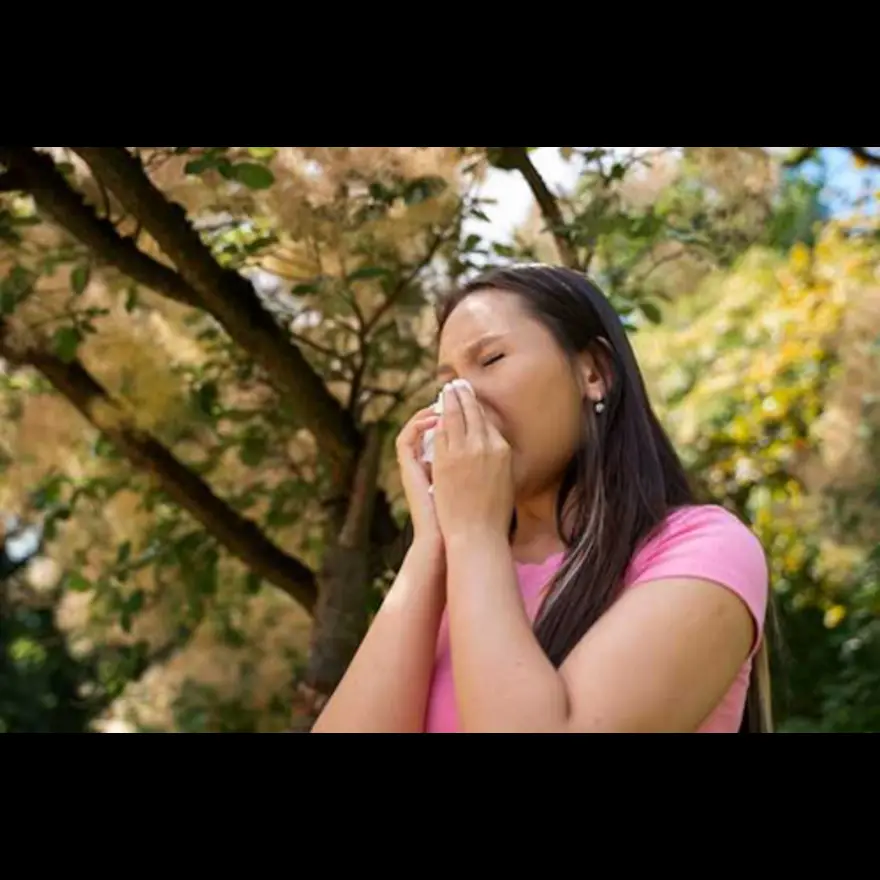Preventive Healthcare
Pneumonitis: Causes, Symptoms, and How to Treat This Lung Condition
851 Views
0

What is pneumonitis?
Pneumonitis is a lung inflammation caused by an immune reaction to an irritant, not an infection. When the tiny air sacs in the lungs (alveoli) become swollen and inflamed, it becomes harder for oxygen to pass into the bloodstream. This can lead to breathing difficulties, coughing and other respiratory symptoms.
Is pneumonitis serious?
Left untreated, pneumonitis can indeed become a serious health issue. Ongoing lung inflammation can result in permanent scarring and damage called pulmonary fibrosis. Chronic pneumonitis may also cause complications like substantial weight loss, clubbing (enlargement) of the fingers and toes, and significantly reduced lung function. Prompt diagnosis and pneumonitis treatment are important to prevent the condition from progressing to this stage.
What are the types of pneumonitis?
Pneumonitis can be classified into various types based on the underlying cause, each with distinct characteristics. By recognising the various pneumonitis types, healthcare providers can tailor their approach to improve patient outcomes.
- Hypersensitivity Pneumonitis (HP) is the most common type and results from an allergic reaction to inhaled organic dust, molds, chemicals, or other substances.
- It can present as either acute or chronic, depending on exposure and individual sensitivity.
- Drug-induced Pneumonitis occurs as a side effect of certain medications, including some antibiotics, chemotherapy drugs, and heart medications.
- This type can vary in severity and duration based on the specific drug involved.
- Radiation Pneumonitis may develop in patients undergoing radiation therapy to the chest, such as for breast or lung cancer.
- Understanding these pneumonitis types is crucial for effective diagnosis and treatment, as each requires different management strategies.
What are the symptoms of pneumonitis?
Pneumonitis symptoms can vary depending on whether the condition is acute or chronic.
Signs of acute pneumonitis, which usually appear 4-6 hours after exposure to the triggering substance, often include:
- Fever and chills
- Muscle or joint pain
- Headache
Chronic pneumonitis symptoms develop more gradually and are characterised by:
- Dry cough
- Chest tightness or pain
- Fatigue
- Decreased appetite and weight loss
- Shortness of breath, especially with activity
What causes pneumonitis?
Pneumonitis causes center around the inhalation of substances that provoke an exaggerated immune response in the lungs. Some of the most common triggers include:
- Molds and bacteria (e.g. in humidifiers, air conditioners, hot tubs)
- Bird droppings or feathers (called bird fancier's lung)
- Dust from animal fur, hardwood, or metal particles
- Grains and hay containing mold spores (farmer's lung)
- Chemicals (e.g. pesticides, aerosolised mists)
- Certain medicines (chemotherapy drugs, antibiotics, etc.)
- Radiation therapy to the chest
Is pneumonitis contagious?
You can rest assured that pneumonitis itself is not contagious. Since it stems from an individual's immune reaction to a particular substance rather than an infection, you cannot "catch" pneumonitis from someone else.
Who does pneumonitis affect?
Pneumonitis can develop in people of any age, but the average age at diagnosis is between 50 to 55 years old. You may be at higher risk if you have a family history of the condition. Frequent exposure to organic dust, molds, chemicals or other irritants - whether at work, at home or through hobbies - also makes a person more prone to pneumonitis.
What are the complications of pneumonitis?
If pneumonitis progresses without proper treatment, it can lead to serious complications such as:
- Pulmonary fibrosis, which causes irreversible scarring of the lung tissue
- Severe weight loss and systemic symptoms
- Clubbing of fingers and toes due to chronic lung disease
- Respiratory failure in very severe cases
How is pneumonitis diagnosed?
To diagnose pneumonitis, your doctor will start by taking a thorough medical history, asking about your symptoms and any exposure to potential irritants. This will be followed by a physical exam to check for abnormal lung sounds.
What tests will be done to diagnose pneumonitis?
To diagnose pneumonitis, several tests are performed to assess lung inflammation and rule out other conditions.
- Chest X-ray and CT scans are essential imaging techniques that help identify signs of lung inflammation. These scans can reveal the extent and pattern of damage.
- Spirometry is another important test used to assess lung function, measuring how much air you can inhale and exhale, which can indicate the severity of the condition.
- Pulse oximetry or arterial blood gas tests measure blood oxygen levels, providing insight into how well the lungs are functioning.
- Bronchoscopy allows doctors to visually examine the lungs and collect samples of tissue or fluid for further analysis.
- Finally, a lung biopsy may be conducted to analyze lung tissue under a microscope.
Understanding the pneumonitis causes is vital for appropriate pneumonitis treatment, as different pneumonitis types may require tailored therapeutic approaches to manage symptoms effectively.
How is pneumonitis treated?
Pneumonitis treatment focuses on reducing lung inflammation and preventing further exposure to the triggering substance. The specific approach depends on the severity of your symptoms.
- Mild cases may get better on their own after avoiding the irritant
- Oral corticosteroids are used to control inflammation in more serious cases
- Oxygen therapy may be needed if blood oxygen levels are low
- Immunosuppressant drugs may be prescribed if steroids are ineffective
In addition, your doctor will advise you to:
- Identify and strictly avoid any substances that triggered the pneumonitis
- Quit smoking and avoid exposure to secondhand smoke
- Get plenty of rest to help your body recover
- Stay well-hydrated and eat a balanced diet to support healing
How soon after treatment will I feel better?
With proper pneumonitis treatment, most people start to feel better within a few days to weeks. The full recovery time varies depending on the extent of inflammation. Chronic pneumonitis usually improves within 2-3 months, provided the lungs have not been severely scarred. Your doctor will monitor your progress through regular follow-up visits and tests.
How to prevent pneumonitis?
While not all cases are preventable, you can reduce your pneumonitis risk by taking these precautions:
- Minimise exposure to known triggers like dust, mold, chemicals and smoke
- Wear a face mask when working with hay, wood dust or other irritants
- Make sure indoor spaces are well-ventilated
- Review your medications with your doctor to identify any that may cause pneumonitis
What is the outlook for pneumonitis?
With early diagnosis and proper treatment, the outlook for pneumonitis is generally good. The condition often resolves fully if the lungs have not been permanently damaged. Identifying and avoiding triggers is key to preventing relapses. In chronic cases, ongoing monitoring and medication may be needed to manage symptoms and slow disease progression. Severe cases that cause lung scarring may have a poorer prognosis.
How long does pneumonitis last?
The duration of pneumonitis varies depending on the cause, severity and individual factors. Acute pneumonitis often clears up within a few days to weeks once the trigger is removed. Chronic cases usually improve within 3 months with treatment, but some people may have ongoing symptoms if lung scarring has occurred. Your healthcare provider can give you a better estimate based on your specific condition.
Can you fully recover from pneumonitis?
Yes, complete recovery from pneumonitis is possible, especially if the condition is diagnosed and treated promptly before permanent lung damage occurs. However, if significant scarring has developed, lung function may be compromised long-term and some symptoms may linger. Following your treatment plan and taking steps to avoid triggers can improve your chances of a full recovery.
When to see a doctor for pneumonitis?
It's important to consult your healthcare provider if you experience symptoms suggestive of pneumonitis, such as shortness of breath, cough, fever and fatigue - especially if you have been exposed to any known triggers. Identifying and treating pneumonitis early helps prevent complications. If you have been diagnosed with pneumonitis, see your doctor promptly if your symptoms suddenly worsen or do not improve with treatment.
What is the difference between pneumonia and pneumonitis?
While both pneumonia and pneumonitis involve lung inflammation and similar symptoms, they differ in their causes.
- Pneumonia is triggered by an infection with bacteria, viruses or fungi, while pneumonitis is a non-infectious condition caused by exposure to an irritating substance.
- Pneumonia is treated with antibiotics, whereas pneumonitis treatment focuses on reducing inflammation and avoiding triggers.
Conclusion
Being diagnosed with pneumonitis can feel overwhelming, but understanding the condition is an empowering first step in regaining control of your health. Identifying and avoiding your unique triggers, along with following your doctor's treatment plan, goes a long way towards managing symptoms and preventing complications. If you need support or have questions, don't hesitate to talk to your healthcare provider.
You can also explore reputable online resources like Metropolis Healthcare's website for more information on lung health and diagnostic testing services. Remember, with the right knowledge, care and lifestyle adjustments, you can breathe easier and get back to living your fullest life.























 WhatsApp
WhatsApp
